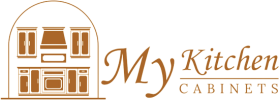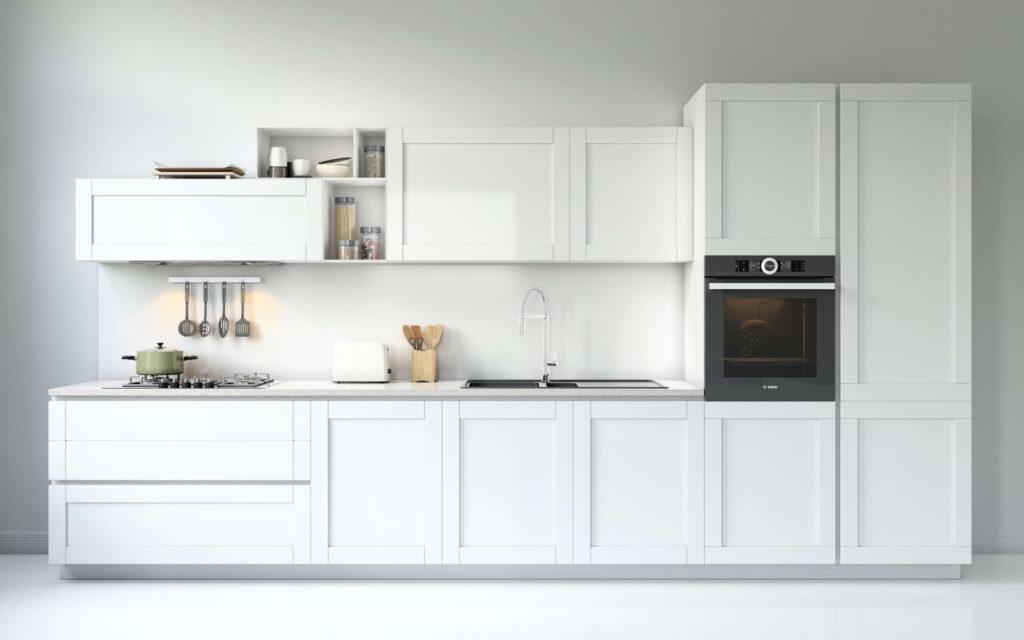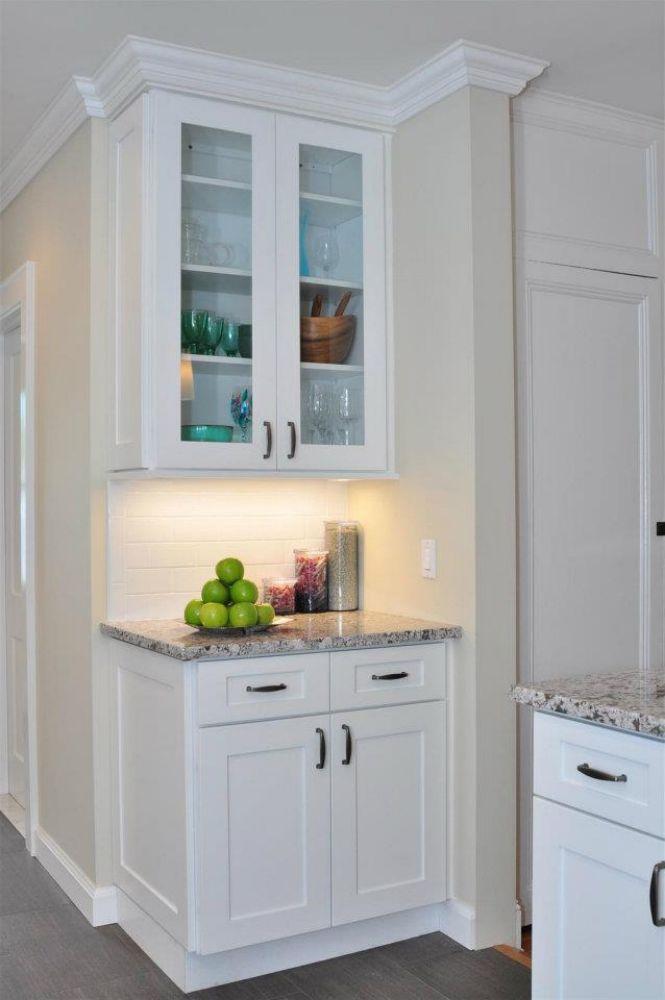Selecting Countertop Materials for DIY Kitchen Cabinet Installation
Introduction
When it comes to DIY kitchen cabinet installation, one of the critical decisions you’ll need to make is selecting the right countertop material. Countertops not only play a functional role but also contribute significantly to the aesthetics of your kitchen. In this comprehensive guide, we will address ten of the most frequently asked questions about choosing the ideal countertop material for your DIY kitchen cabinet project.
1. What are the Popular Countertop Materials?
Before diving into specifics, it’s essential to know your options. There are several popular countertop materials to choose from, each with its own set of advantages and drawbacks. Here’s a list of some common choices:
- Granite: Known for its durability and natural beauty.
- Quartz: Engineered stone that’s low-maintenance and comes in various colors.
- Marble: Prized for its elegance but requires more care.
- Laminate: Budget-friendly and available in numerous designs.
- Butcher Block: Adds warmth to the kitchen and is suitable for cutting.
- Concrete: Customizable and can be shaped to fit your needs.
- Solid Surface: Seamless and easy to maintain.
- Tile: Offers a wide range of colors and patterns.
- Stainless Steel: Modern and industrial in appearance.
- Soapstone: Unique and heat-resistant.
2. How Do I Decide on a Budget?
Determining your budget is a crucial step in selecting a countertop material. The cost of materials varies significantly, so you must set a budget that aligns with your overall project finances. Remember to account for installation costs, which may also vary depending on the material you choose.
Here’s a rough breakdown of the average cost per square foot for some common countertop materials:
| Material | Average Cost per Square Foot |
|---|---|
| Granite | $50 – $200 |
| Quartz | $60 – $150 |
| Marble | $75 – $250 |
| Laminate | $20 – $60 |
| Butcher Block | $40 – $100 |
| Concrete | $70 – $140 |
| Solid Surface | $50 – $120 |
| Tile | $20 – $100 |
| Stainless Steel | $80 – $150 |
| Soapstone | $70 – $120 |
Ensure that your budget not only covers the cost of the materials but also includes expenses for any necessary tools, supplies, and professional assistance if needed.
3. What Factors Should I Consider When Choosing a Countertop Material?
Selecting the right countertop material involves considering various factors. Here are some essential factors to take into account:
- Durability: How well will the material withstand daily use and potential wear and tear?
- Maintenance: Are you willing to commit to the required maintenance tasks?
- Aesthetics: Does the material align with your kitchen’s style and your personal preferences?
- Budget: Is the material within your budget, including installation costs?
- Functionality: Does the material meet your specific cooking and kitchen needs?
- Resale Value: Will the countertop material add value to your home if you decide to sell?
Carefully weighing these factors will help you make an informed decision.
4. What Is the Maintenance Required for Different Countertop Materials?
Maintenance varies significantly between countertop materials. Some require more attention and care than others. Here’s a brief overview of maintenance considerations for common materials:
- Granite: Sealing is recommended every 1-2 years, and spills should be wiped promptly.
- Quartz: Low maintenance, as it is non-porous and resistant to stains.
- Marble: Prone to staining, so sealing and regular cleaning are necessary.
- Laminate: Easy to clean but can be damaged by sharp objects and heat.
- Butcher Block: Requires regular oiling and may develop scratches.
- Concrete: Sealing is essential to prevent stains and ensure longevity.
- Solid Surface: Relatively low maintenance, with seamless joints.
- Tile: Grout lines may require regular cleaning and sealing.
- Stainless Steel: Easy to clean but can show scratches and fingerprints.
- Soapstone: Requires regular oiling to maintain its dark color.
Consider your willingness to invest time and effort in maintenance when making your selection.
5. Which Countertop Material Is the Most Durable?
Durability is a key consideration, especially if you want your countertops to last for years to come. Granite and quartz are among the most durable options. Granite is incredibly hard and resistant to scratches and heat, while quartz is non-porous and less prone to stains. However, proper maintenance and care play a significant role in ensuring longevity, regardless of the material you choose.
6. Are There Eco-Friendly Countertop Options?
If sustainability is a priority for your kitchen project, you’ll be pleased to know that there are eco-friendly countertop options available. Materials like recycled glass, bamboo, and concrete with recycled content are environmentally conscious choices. Additionally, look for certifications such as LEED (Leadership in Energy and Environmental Design) to ensure your selected material meets green building standards.
7. Can I Install the Countertops Myself?
DIY enthusiasts often wonder if they can install countertops themselves. While some materials are more DIY-friendly than others, installing countertops can be a challenging task that requires precision and experience. Granite and quartz, for example, are best left to professionals due to their weight and complexity. On the other hand, laminate countertops are relatively easy for DIY installation, making them a popular choice for budget-conscious homeowners.
8. What Countertop Material Offers Unique Design Options?
If you’re looking to create a one-of-a-kind kitchen, consider countertop materials that offer unique design possibilities. Concrete countertops, for instance, can be customized with various colors and textures. Additionally, tile countertops provide an array of design choices through patterns and color combinations. For a modern and sleek appearance, stainless steel countertops offer a distinctive aesthetic.
9. Are There Countertop Materials Suited for Small Kitchens?
Small kitchens can benefit from certain countertop materials that help create the illusion of more space. Light-colored materials like quartz and solid surface can make a small kitchen appear more open and airy. Additionally, materials with seamless designs, such as solid surface and stainless steel, can reduce visual clutter and make the space feel less cramped.
10. What Countertop Material Is Best for Heavy Kitchen Use?
If your kitchen sees a lot of activity and heavy use, you’ll want a countertop material that can withstand the demands. Granite and quartz are excellent choices due to their durability and resistance to stains, scratches, and heat. Solid surface countertops also hold up well to heavy use and are easy to maintain. Consider these options to ensure your countertops can handle the daily wear and tear of a bustling kitchen.
In conclusion, selecting the right countertop material for your DIY kitchen cabinet installation project requires careful consideration of your budget, style preferences, maintenance willingness, and functionality needs. Each material has its own set of advantages and drawbacks, so take your time to research and weigh the options before making a decision. Your choice of countertop material will play a significant role in the overall look and feel of your kitchen, making it a decision worth investing time and effort into.
11. Can I Mix Countertop Materials in My Kitchen?
Mixing countertop materials can add a unique and personalized touch to your kitchen design. It’s entirely possible to combine different materials, but there are a few things to keep in mind:
- Consistency: While mixing materials can create visual interest, it’s essential to maintain a cohesive look. Ensure that the chosen materials complement each other in terms of color, texture, and style.
- Functionality: Consider the function of each countertop area. For instance, you might want a durable and heat-resistant material near the stove and a more decorative material on the island.
- Seamlessness: If you opt for two different materials, make sure there’s a seamless transition between them to avoid awkward or unsightly joints.
- Budget: Mixing materials can impact your budget, so be mindful of cost when choosing different options.
12. What Countertop Material Resists Stains the Best?
Stain resistance is a significant concern, especially in the kitchen where spills are common. If you want a countertop that resists stains effectively, quartz is an excellent choice. Being non-porous, it doesn’t absorb liquids and is highly resistant to staining from foods, oils, and beverages. Granite also offers good stain resistance, particularly when properly sealed. However, it’s essential to clean up spills promptly regardless of the material to maintain its appearance.
13. Are There Countertop Materials Suitable for Outdoor Kitchens?
If you’re planning an outdoor kitchen, you’ll need a countertop material that can withstand the elements. Some materials, like granite and concrete, are suitable for outdoor use due to their durability and resistance to temperature changes. Additionally, consider natural stone options like soapstone, which can develop a beautiful patina when exposed to the elements.
14. How Can I Match Countertop Materials with Cabinet Colors?
Achieving a harmonious look in your kitchen involves coordinating countertop materials with cabinet colors. Here are some tips to help you achieve a balanced and appealing color scheme:
- Contrast: Create contrast by pairing light cabinets with dark countertops or vice versa for a striking visual effect.
- Complement: Choose countertop colors that complement the cabinet finish. For example, warm wood cabinets can be paired with earth-toned countertops.
- Sample Testing: Before making a final decision, obtain samples of both the cabinet and countertop materials to see how they look together in your kitchen’s lighting.
- Color Wheel: Refer to a color wheel to identify complementary or analogous color combinations for a cohesive look.
15. What Countertop Materials Are Best for Baking Enthusiasts?
Baking enthusiasts often require a specific countertop material that’s ideal for dough preparation. For this purpose, a butcher block countertop can be an excellent choice. Its natural wood surface is gentle on dough and provides an ideal workspace for kneading and rolling. However, keep in mind that butcher block requires regular maintenance, including oiling, to keep it in top condition.
16. Can I Install Countertops Over Existing Cabinets?
In some cases, you may wonder if it’s possible to install new countertops over your existing cabinets to save time and money. While it’s technically feasible, several factors come into play, including the condition of your current cabinets and the thickness of the new countertop material. Additionally, this approach may limit your design options. Consult with a professional installer to determine if this is a viable option for your kitchen.
17. What Countertop Material Offers the Most Color Options?
If you’re looking for a wide range of color options to match your kitchen’s color scheme, quartz is an excellent choice. Quartz countertops are engineered and can be manufactured in various colors and patterns, allowing for customization. Additionally, tile countertops offer an extensive selection of colors and designs, making them a versatile choice for those seeking vibrant and unique options.
18. Can Countertop Materials Be Repaired if Damaged?
Countertops can sustain damage over time due to heavy use or accidents. The repairability of a countertop material depends on the extent of the damage and the material itself. Granite and quartz are relatively resistant to damage but can still chip or crack. Solid surface countertops can be repaired seamlessly if scratched or chipped. Laminate countertops are more challenging to repair and may require replacement if significantly damaged. Always consult a professional for repairs to ensure the best results.
19. Are There Countertop Materials Resistant to Heat?
Heat resistance is essential in the kitchen, where hot pots and pans are frequently placed on countertops. Granite and quartz are among the most heat-resistant materials, capable of withstanding high temperatures. However, it’s still advisable to use trivets or hot pads to protect the surface. Solid surface countertops are also heat-resistant but can be damaged by extreme heat, so precautions should be taken.
20. Can I Get Countertops with Integrated Sink Options?
Integrated sinks offer a seamless and stylish look in the kitchen. Some countertop materials, like solid surface and quartz, allow for integrated sink installation. This creates a clean and contemporary appearance, eliminating the need for a separate sink cutout. If you desire an integrated sink, be sure to discuss this option with your countertop fabricator during the selection and installation process.
In conclusion, selecting the right countertop material for your DIY kitchen cabinet installation project involves considering a multitude of factors, including your budget, style preferences, maintenance capabilities, and functional needs. By thoroughly researching your options and asking the right questions, you can make an informed decision that will enhance the overall look and functionality of your kitchen. Remember that each material has its unique characteristics, so take your time to choose the one that best suits your specific requirements and complements your kitchen design.
See: Kitchen Cabinets
Conclusion
Selecting the perfect countertop material for your DIY kitchen cabinet installation is a decision that requires careful consideration of various factors. From budget constraints and aesthetic preferences to durability, maintenance requirements, and functionality needs, each aspect plays a crucial role in making the right choice.
In this comprehensive guide, we’ve explored twenty of the most commonly asked questions when it comes to countertop selection. We’ve covered a wide range of topics, including material options, maintenance, design possibilities, suitability for specific kitchen types, and much more. Armed with this knowledge, you’re better prepared to make an informed decision that aligns with your unique needs and aspirations.
Remember that there’s no one-size-fits-all answer when it comes to countertop materials. Each option offers its own set of advantages and drawbacks, and the best choice for your kitchen will depend on your individual circumstances and priorities.
Ultimately, your chosen countertop material will not only serve as a functional workspace but also contribute significantly to the overall look and feel of your kitchen. So, take your time, weigh the options, and select the countertop material that best suits your DIY kitchen cabinet installation project. With the right choice, your kitchen will become a space where functionality and aesthetics seamlessly merge, creating a beautiful and efficient hub for cooking, dining, and entertaining.
Read: Using Corner Cabinets for DIY Kitchen Cabinet Installation
Read: Setting Door Handles for DIY Kitchen Cabinet Installation



